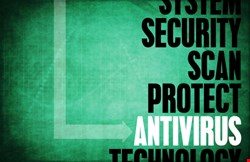
One interesting set of statistics provides possible responses to the increasingly asked questions: does anti-virus software work, and is it worth having. The clear answer seems to be yes in both cases. "3.2% of the users stated that their security product failed to protect their system within the last week. 79% of the users stated that the last time their security product failed to protect their system was over six months ago," notes the report.
On its own, this could imply that the number of virus attacks is decreasing, rather than AV efficiency is improving. However, an associated question asked users when their AV product last blocked a malicious file. Here the trend is reversed: 38% said less than a week ago, while only 11% said it was more than six months ago. Taken together, notes the report, these two questions "illustrate the effectiveness of current antivirus software."
The survey also asked users which operating system, which browser, and which AV product they used. Windows 7 has 57.1% of the desktop market, still well ahead of Windows 8 which has 28.5%. Surprisingly, perhaps, since support will end next month, XP still has 10.7%. Mac's OS/X has only 1.5% of the world's desktop market; although this increases to 7.2% in North America.
This geo-political influence also shows itself in other products. In the mobile market, Android dominates with a 70.1% market share. Apple's iOS has only a 14.9% share, although this rises to 18.0% in North America. In browsers, Chrome and Firefox dominate with 40.6% and 31.5% respectively.
Geo-politics returns in the use of individual mobile AV products. Avast is the most popular product in Europe, North America and South/Central America. In Asia it comes in third behind Qihoo 360 and Tencent. But behind Avast, ESET (European) comes second in Europe; Lookout (American) comes second in North America, and Avira (German) comes second in Central/South America.
Avira also dominates in PC usage. Kaspersky Lab (a Russian company) comes second in all four areas except North America where it slips to fifth position behind ESET (European but with a strong North American presence). Symantec and Microsoft. This is the only geographic area in which either Symantec or Microsoft appear in the top five. ESET again figures strongly, appearing in the top three in all areas other than Asia, where it slips to fifth.
One thing that stands out from this survey is the wide usage of free anti-virus products. This is likely to increase given the increasing importance of China to world markets. Very few mobile security products are paid-for in China, with the majority getting income from advertising and gaming platforms. "It is to be expected," says the report, "that in the future, more and more AV companies will provide free security solutions for home users and get their revenue only from business software packages."
But this doesn't necessarily imply any less security. “Respondents using a free solution," explained Andreas Clementi, AV-Comparatives’ CEO, "don’t necessarily receive inferior protection. A number of the reports we issued in 2013 demonstrated that free solutions outperformed a number of paid solutions.”